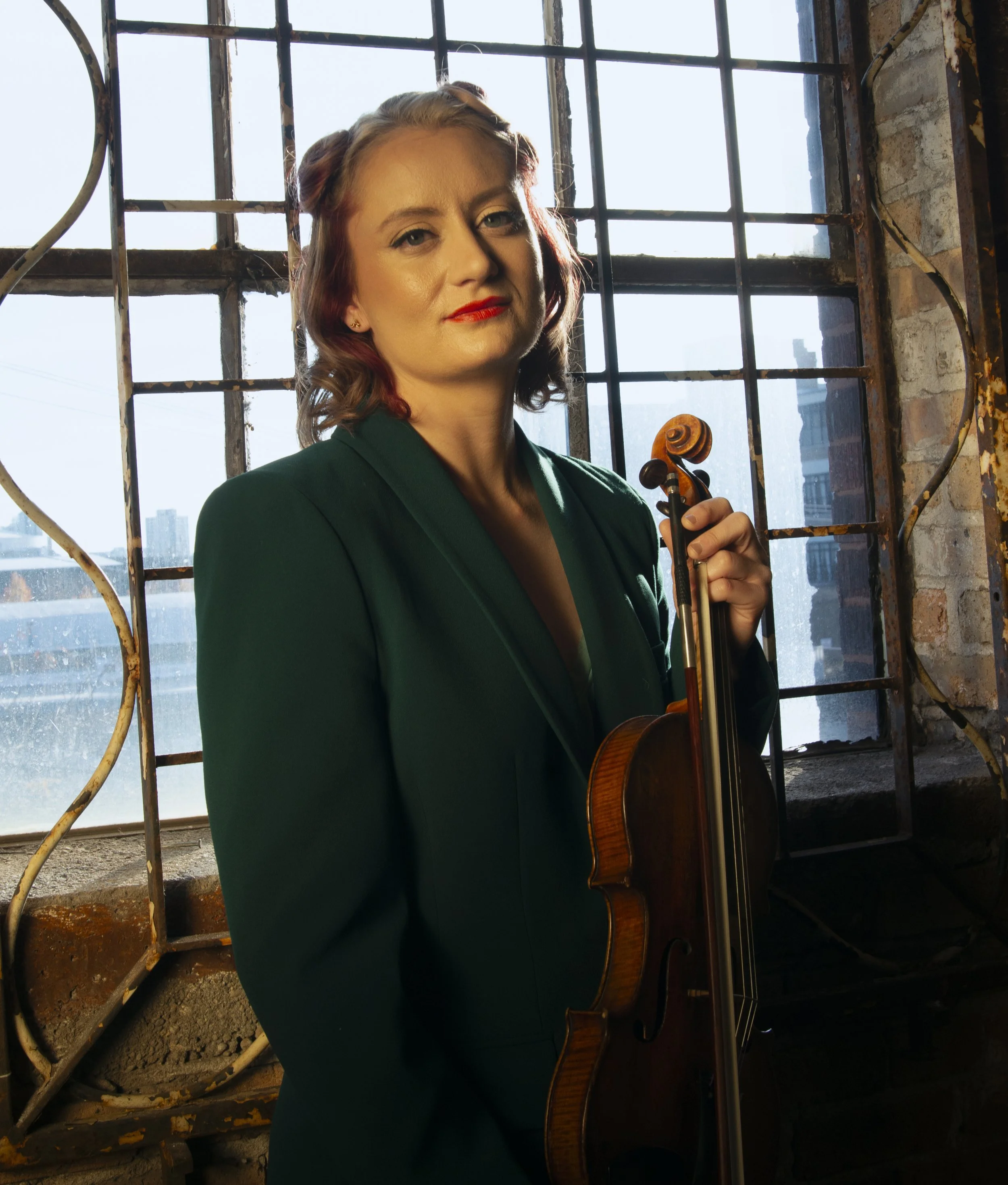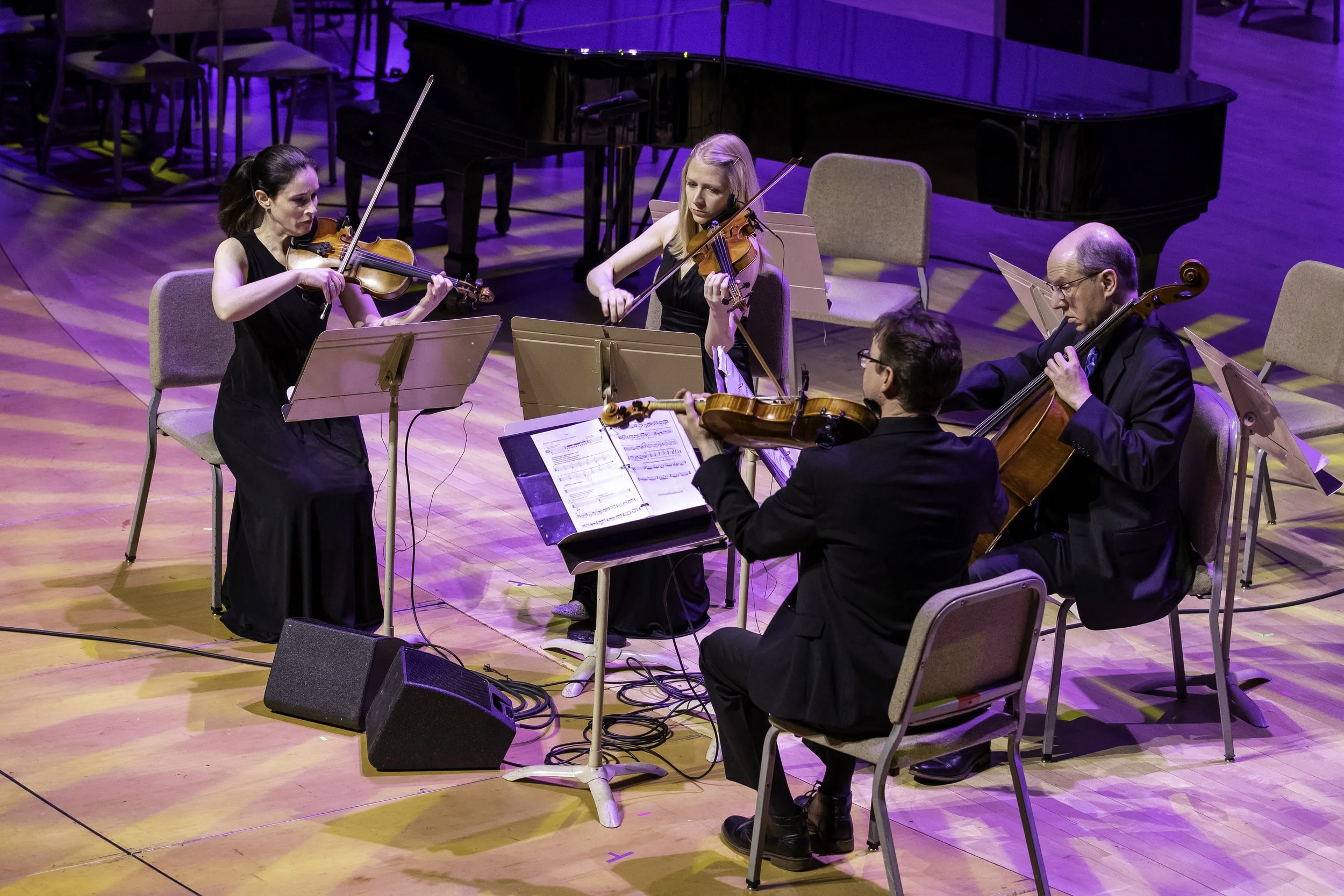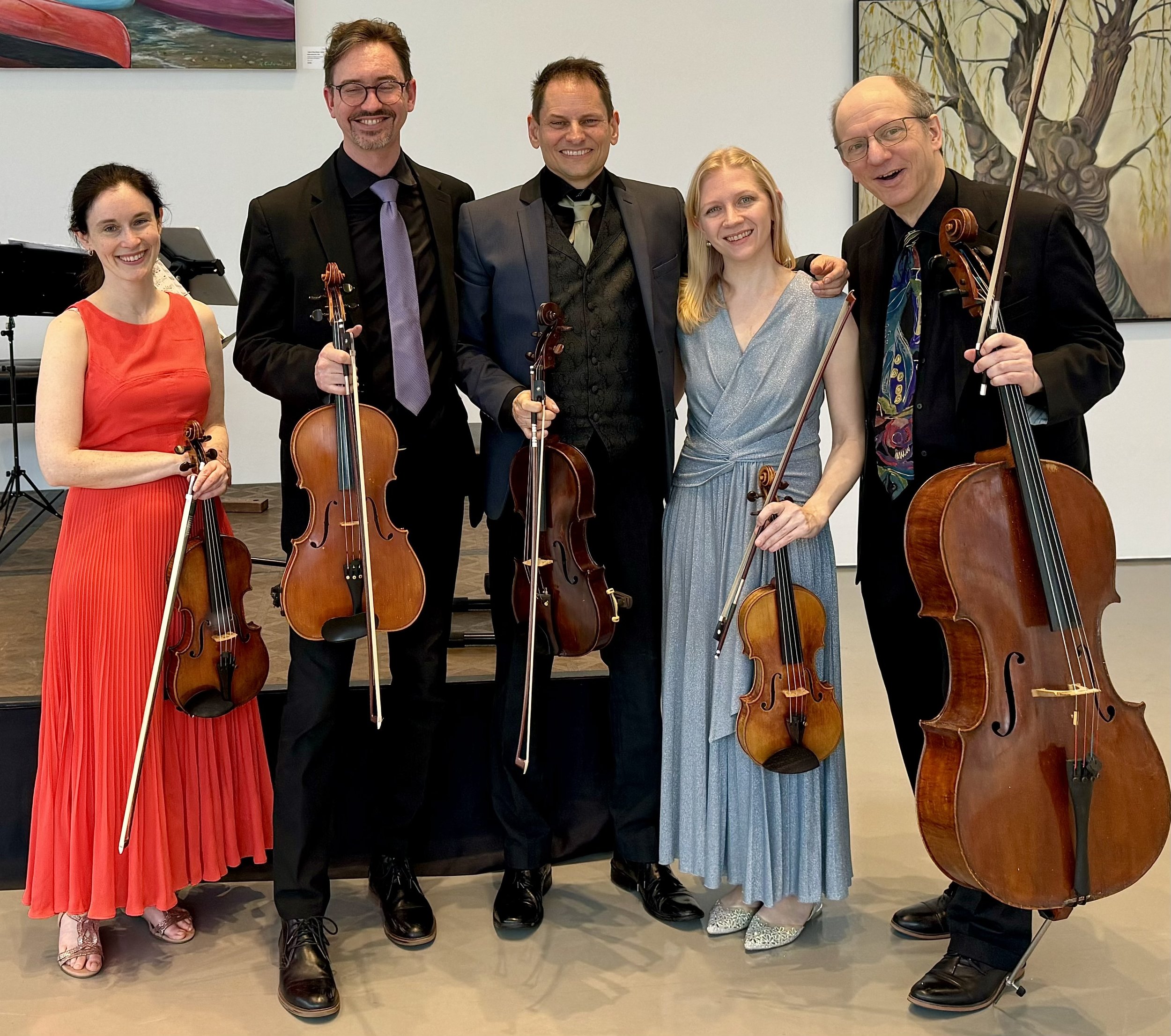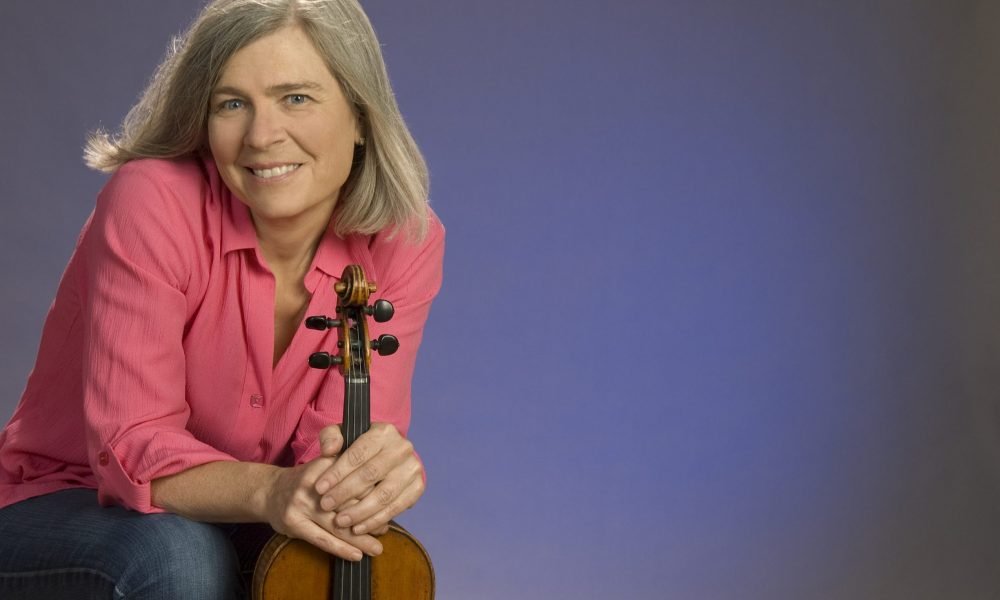In successive weekends, we first played Britten’s 3rd quartet on Emmanuel Music’s Britten festival, followed by a Russian - themed program at Boston Conservatory. Here are two rave reviews from the Boston Musical Intelligencer:
NOVEMBER 8, 2018
Britten Mini-Festival Concludes
by Steven Ledbetter link here
"The last half of the program consisted of Britten’s last work, his String Quartet No. 3, in G Major; Op. 94, performed by the excellent Lydian Quartet (Andrea Segar and Judith Eissenberg, violins, Mark Berger, viola, and Joshua Gordon, cello). Britten partly composed it in a city he loved, and the site of his final opera, Death in Venice. The five movements basically alternate faster and slower tempos, with the fast movements in second and fourth position. The Lydian players masterfully projected the moods and light textures (as the duet patterns of the first movement, and the dying away effect of the closing Passacaglia, sharply contrasted with the fast Ostinato of the second movement and the wild Burlesque of the fourth. In my experience, at least, this is been the least often performed of Britten’s string quartets; I am especially grateful for this luminous and dramatic reading."
NOVEMBER 11, 2018
Russian Themes Course Through Fenway
by Julie Ingelfinger link here
“The Brandeis-based Lydian Quartet treated last night’s delighted Seully Hall audience to two important 20th Century Russian works along with a much earlier work (1806), Beethoven’s Opus 59, No. 1, the first Razumovsky quartet, with its Russian-themed third movement. Founded in 1980, the Lydian’s present members include first violinist Andrea Segar (joined in 2016), second violinist, Judith Eissenberg (founding member), violist Mark Berger (joined in 2014) and cellist Joshua Gordon (member since 2002). Since its earliest days, the quartet has garnered many awards and praise for their consummate artistry and thoughtful thematic programming; tonight’s concert reflected that tradition.
The Tatar-Russian composer Sofia Gubaidulina’s single-movement Quartet Number 4, played exquisitely by the Lydians, places the musicians on stage along with two prerecorded quartets in which the first (A) is a quarter tone higher than the second (B). The work, commissioned by the Kronos Quartet and premiered nearly 25 years ago in January, 1994, still sounds and feels fresh and experimental, yet includes many classical elements, ranging from medieval polyphony to contemporary work. Gubaidulina asks “how the ‘real’ arises from the ‘unreal’… creatively speaking.” . . . Is this a quartet? Or is some other title more appropriate here?”
Embodying that question, the quartet came on stage, sat down, tuned and adjusted their music and stands and then waited, as music wafted from speakers along with simultaneous projections of rectangles with stain-glassed hues, befitting the hammer-beam ceiling of the Hall. They then sat still and silent until the composition directed them to add their in-person sounds. The sequence created a reverential mood, in which pizzicato/arco recorded sounds become enmeshed with the mostly bowed melodies of the in-person players, engaging the audience to consider musical heritage. The combined effect was electrically hypnotic.
Prokofiev wrote his Quartet No. 2 in F Major during World War II in a five-week period starting in November, 1941, in the Kabardino-Balkar capital, Nalchik, about 1000 miles south of Moscow, where leading composers and artists were sent after the Nazis invaded the Soviet Union. He had been encouraged/commanded to create work emblematic of the region including regional folksongs, which he incorporated and transformed as melodies, textures and rhythms into the three-movement work. Last night the musicians rendered the quartet with their typical depth, precision and musicality. The first movement contains Prokofiev’s hallmark dissonances but adds a regional feel with the folk melody, Sosruko, and its accordion-like violin accompaniment and the dance, Udzh Starikov. In the second movement, the composer includes the strains of the kemange (kjamantchi), a Caucasian 3-stringed instrument and cellist Gordon fairly sang a love song. Reprises in the final Allegro with two melodies alternating with a mountain dance bring the listener back to the first movement. The Lyds were in their element.
From the initial cello entrance to the final tutti of the fourth movement of Beethoven’s familiar first Razumovsky, the ensemble gave us a remarkable traversal. The first movement, an allegro, with its recapitulation of the opening melody at intervals sounded fresh and sonorous. The second movement’s allegretto vivace and sempre scherzando incorporates moments of hymn-like sonority amidst its energy and foreboding. The quartet provided a soulful account of the majestic adagio molto e mesto-attaca in the F minor third movement. The allegro “Thème Russe” of the final movement with its period Russian melody ended the evening with verve. This first Razumovsky may appear with predictable frequency, but not so often with the Lyd’s memorable freshness.
The Lydian Quartet will be appearing next at Brandeis on December 15th and at Emmanuel Music on January 26th. Given the foursome’s thoughtful programming, as well as their joy and accomplishment, I urge readers to attend.”














